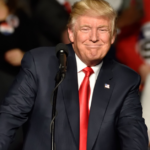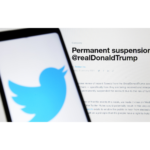The Criminal Indictment of Donald Trump: Justice or Political Persecution?

Former US President Donald Trump has been indicted by a grand jury in Manhattan, New York.
He is the first person in US history to serve as president, and then be charged with a crime.
Specific charges against Mr Trump have not been made public, although they are rumoured to relate to “hush money” paid to adult film star Stormy Daniels in 2016 over an alleged sexual encounter shortly before the former for president.
Mr Trump’s lawyer at that time, Michael Cohen, organised the payment and when Donald Trump was president, he reimbursed his lawyer by way of a monthly $35,000 payment from his personal account.
In 2018, Mr Cohen pleaded guilty to campaign finance charges related to the hush money payment. Court documents in Cohen’s federal case said the Trump Organisation falsely described payments as legal expenses, citing a legal retainer that did not exist.
Mr Trump has denied all allegations against him, and claims to have been a victim of extortion.
The legal process
An indictment is a document which contains the criminal charges brought against a person.
A Grand Jury, which contains 23 people, is assembled to hear evidence from witnesses presented by prosecutors, and at the end of the process the prosecutors decide whether or not to ask the jurors to vote on an indictment, which then determines whether a defendant will be formally charged and stand trial.
The indictment process is largely kept secret until the Grand Jury decision is made. Sometimes it remains completely confidential until the defendant makes a first court appearance.
The District Attorney’s office is said to be currently coordinating with Trump’s legal team to have him voluntarily turn himself in. If he fails to cooperate, he will be arrested. After arrest, or after voluntary surrender to authorities, Mr Trump will face normal processing by police – including providing a ‘mug shot’ as well as fingerprints taken.
Arrest could be imminent
Mr Trump posted on social media earlier this month that he expected to soon be arrested.
Many believe that given his love of the spotlight, he may well make a ‘moment’ of it and wait to be arrested to make media headlines around the globe. This will play out in the coming days – Mr Trump’s arrangement hearing is scheduled for 4 April 2023.
The arraignment hearing is similar to the way an arraignment hearing operates here in New South Wales. Charges against the defendant are presented before a Judge. Mr Trump will enter a plea and the Judge will then determine ‘bail conditions’ – whether Mr Trump will be released, whether he will pay bail, if so how much, and what the ‘conditions’ of his bail will be.
Mr Trump then remains on bail until a trial – which could be as long as 12 months away.
Could Trump possibly go to prison?
Whether Donald Trump ultimately goes to prison will, of course, depend on the seriousness of the specific charges brought against him as well as the amount of evidence.
Legal experts in the US say that even if he is convicted of some of the ‘felony’ – such as ‘falsifying business records in the commission of another crime’, or violations of campaign finance – it is unlikely he would receive a prison sentence as he has no previous criminal convictions.
What about Trump’s presidency campaign for 2024?
Interestingly, while no one convicted of a felony has ever attempted to run for president before laws around who can and can’t run for Presidency in the US don’t prohibit Trump from trying, even if he is convicted. Again, he may never be convicted. He is presumed innocent until proven guilty in a court of law.
However, while much remains to be seen, what is certain is that this particular development in the life and times of Donald Trump will definitely make his bid for presidency – his fourth – more interesting, controversial and socially divisive than ever before.







